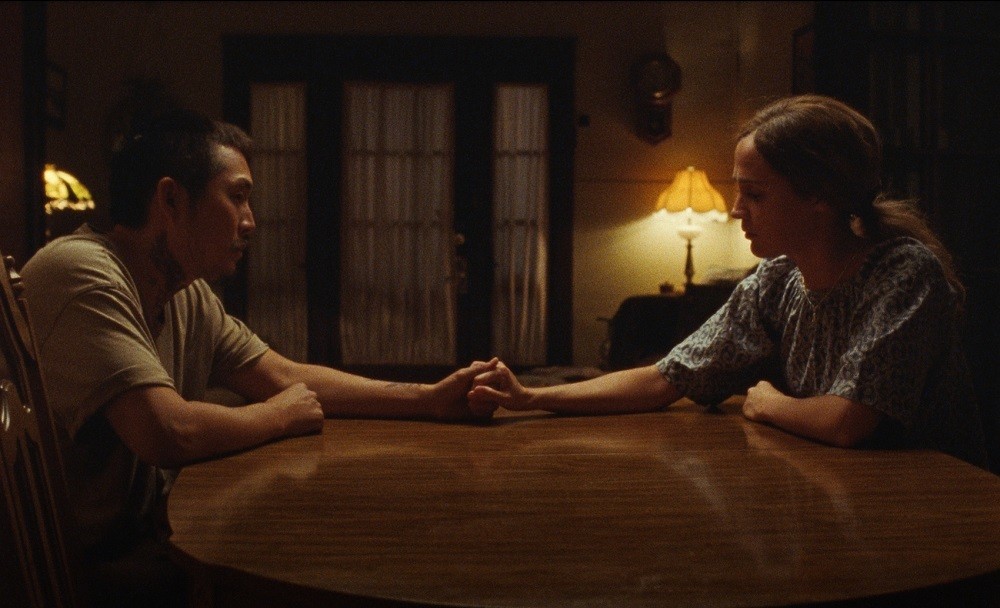Blue Bayou

Justin Chon and Alicia Vikander star in BLUE BAYOU. (Photo: Focus Features)
It’s hard enough to turn your life around with a criminal record, mounting debt, and neck tattoos. But in Blue Bayou, Antonio’s biggest hurdle is completely out of his control.
Making a heartfelt plea for compassion and tolerance, this multilayered melodrama from director Justin Chon (Gook) examines the bureaucratic loopholes and xenophobic obstacles that adoptees from oversees face when trying to simply trying to legally remain in the only country they’ve ever called home.
Chon also stars as Antonio, asked by an unscrupulous job interviewer in the opening sequence where he’s from. “About an hour north of Baton Rouge” is his truthful answer, but it isn’t the right one. A second prompt reveals where he was born: Korea.
He was adopted as a baby by a Louisiana family, which is why his name and his Cajun accent don’t seem to fit. He spent time in prison for stealing motorcycles, and now works as a tattoo artist while trying to start over with his pregnant wife, Kathy (Alicia Vikander).
Meanwhile, Kathy’s young daughter (Sydney Kowalske) adores Antonio over her biological father (Mark O’Brien), a local cop with political connections who tends to show up at inconvenient times.
Eventually, Antonio’s checkered past catches up and puts him at risk of deportation. As an attorney (Vondie Curtis-Hall) describes their uphill legal battle, exasperated Kathy looks for someone to blame for tearing the family apart, even as her faith in Antonio wavers. “You have a right to be here,” she explains.
The melancholy film offers a familiar redemption arc from a fresh cultural perspective while also capturing the lush visual beauty of its setting.
Chon’s deliberately paced screenplay crafts some intriguing character dynamics, although a deeper emotional resonance sometimes remains elusive as the film indulges in some heavy-handed contrivances while delivering its worthwhile message. Uneven subplots scuttle the narrative momentum before the film refocuses prior to a gut-wrenching climax.
However, the committed performances generate hard-earned sympathy for blue-collar characters on the socioeconomic margins, trying to maintain hope amid some desperate circumstances.
Eventually, the film builds the persuasive power to match its noble intentions. Like its protagonist, Blue Bayou might be conveniently overlooked but shouldn’t be automatically dismissed.
Rated R, 117 minutes.